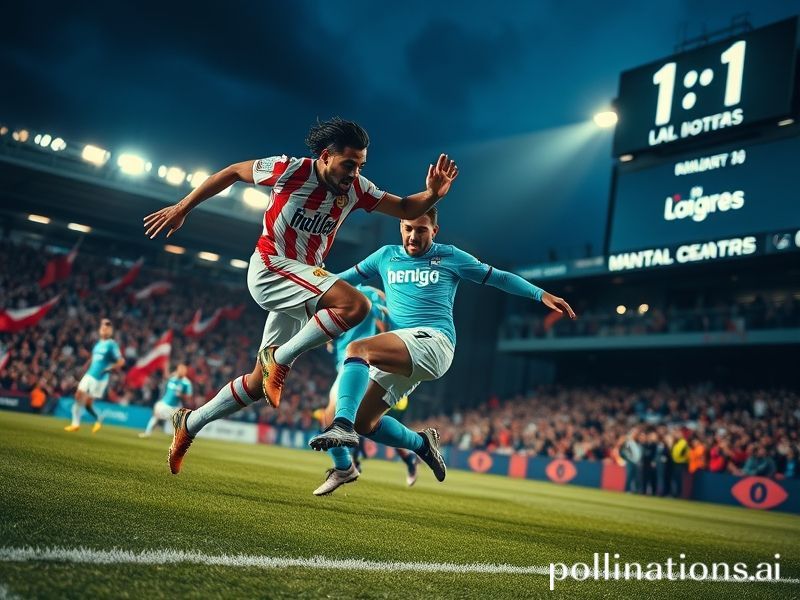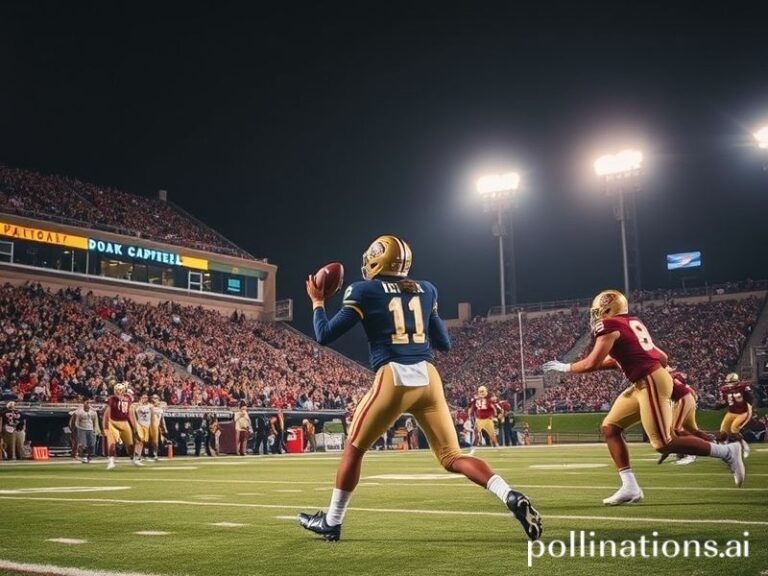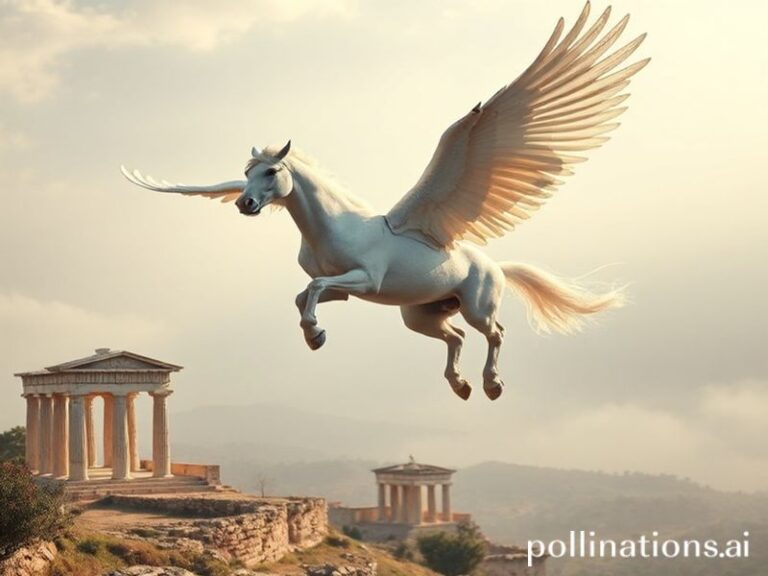Rayo vs Celta: The Mid-Table Match the World Accidentally Cares About
Rayo Vallecano vs Celta Vigo: A Mid-Table Proxy War in the Age of Globalized Apathy
By Dave’s International Affairs Desk, still waiting for VAR to rule on the last twenty years
MADRID—On paper, Rayo Vallecano versus Celta Vigo is the sort of fixture that makes even the most caffeinated La Liga rights-holder stammer. It is not El Clásico, it is not even the Seville derby. It is two clubs separated by 500 kilometres of Iberian tarmac, a combined wage bill smaller than Kylian Mbappé’s monthly cologne allowance, and yet—because football is the planet’s most efficient delivery system for existential metaphors—it is suddenly freighted with global consequence.
Consider the geopolitical backdrop. Europe is quietly re-arming, the Arctic is on fire, and somewhere in Silicon Valley an AI is learning to write transfer rumors in the voice of a hung-over Marca intern. Meanwhile, in Vallecas, a working-class barrio whose main export is graffiti and disillusionment, Rayo’s ultras have spent the week tweeting bilingual manifestos against the Super League, private equity, and the price of beer. Their Galician counterparts in Vigo—population 293,000, unemployment rate 12.4% and climbing—have responded with TikTok videos of octopus emojis and bagpipe remixes of “Galicia Hoxe.” This, friends, is the modern agora: 280 characters, a 15-second reel, and the faint hope that if you meme hard enough, the oligarchs might let you keep your club.
The match itself will be streamed live in 147 countries, mostly to screens glowing in living rooms where people can’t name their own mayor but know Rayo’s left-back spent last season on loan at Bournemouth. The worldwide audience will not be huge—think “medium-sized TikTok dance challenge”—yet it is precisely the marginalia that now drive the sport’s economy. International rights are sliced into micro-licenses; a goat-herder in northern Mongolia with a dodgy IPTV subscription is, in some ledger, a “MAU” (monthly active user) worth 0.003 cents to the league. Multiply by eight billion and you’re talking real money, or at least the sort that buys another inflatable camera drone nobody asked for.
On the pitch, the stakes are almost insultingly modest: three points that might nudge either side from 12th to 10th, the footballing equivalent of being upgraded from economy to economy plus—same cramped seat, but a slightly warmer croissant. Yet the managers, both graduates of the Pep Guardiola School of Pretending to Read the Game, will insist the result is “massive” while wearing the haunted expression of men who know their contracts contain relegation-release clauses written in disappearing ink.
Global supply chains have their fingerprints here too. Rayo’s new striker, on loan from a mid-table Saudi club whose owner recently discovered a conscience at the exact moment he bought Newcastle, will be eager to impress. Celta’s talismanic midfielder, meanwhile, spent last summer endorsing a Korean ginseng drink whose slogan translates roughly to “Run farther, tweet angrier.” Both will be wearing boots manufactured in Vietnam by workers earning less per week than the price of the boots themselves, shipped via the Suez Canal—yes, the one where a single container ship once blocked 12% of world trade because it sneezed. The circle of late capitalism is complete: the boots arrive caked in irony instead of canal silt.
And so, 90 minutes of toil later, the referee—who spent the morning fielding encrypted WhatsApp messages from a betting syndicate in Minsk—will blow for full time. One set of fans will chant about dignity, the other about maritime heritage. The players will swap shirts destined for charity auctions where oligarchs launder reputations. Highlights will be clipped, memed, and forgotten inside 48 hours, just in time for the next mid-table proxy war.
But do not mistake the transience for meaninglessness. In an era when every other institution feels either rigged or on fire, the modest persistence of Rayo versus Celta is its own quiet rebellion: proof that humans still gather, argue, and occasionally sing about something as gloriously pointless as a ball crossing a line. If that isn’t a metaphor for the battered state of international cooperation, I don’t know what is—apart, perhaps, from the UN Security Council, but they don’t even get relegated.







